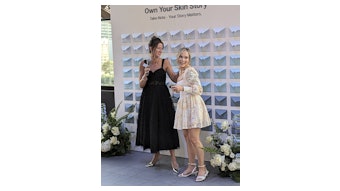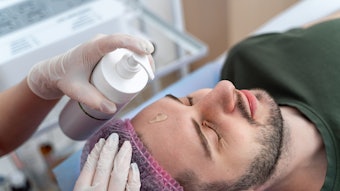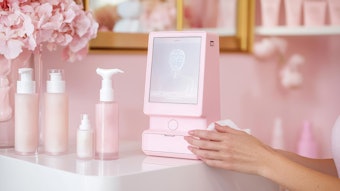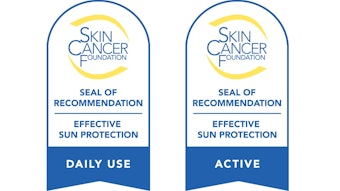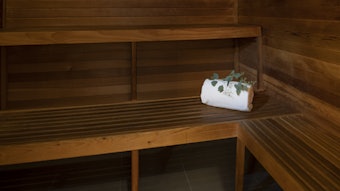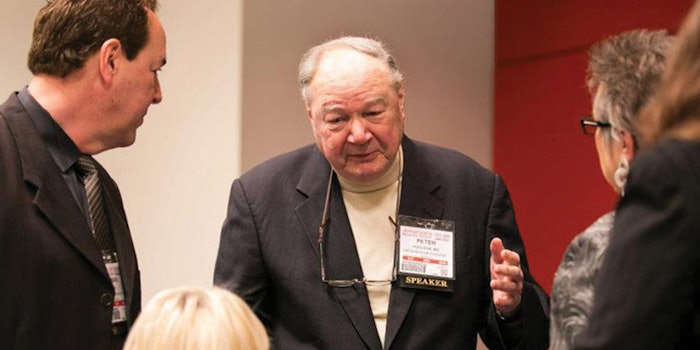
Education is crucial to the advancement of esthetics, allowing its practitioners to build their knowledge to provide more efficacious treatments. This has always been the goal for Peter Pugliese, M.D., founder of Circadia by Dr. Pugliese, who began educating in esthetics when the industry was still in its infancy. Pugliese believed that understanding the physiology of the skin allowed skin care practitioners to provide better treatments; he even wrote a book about it.Pugliese was also a vital writer and educator with Skin Inc. over the past three decades.
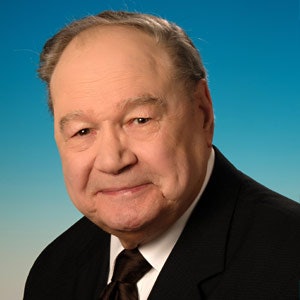 Though he has slowed his activity in the esthetic industry, Pugliese is revered and loved for the knowledge he provided over 40 years. Skin Inc. caught up with Pugliese to discuss how he is proud of non-invasively measuring enzyme activity through the skin, his most memorable moment and why we have his wife Joanne to thank for it all.
Though he has slowed his activity in the esthetic industry, Pugliese is revered and loved for the knowledge he provided over 40 years. Skin Inc. caught up with Pugliese to discuss how he is proud of non-invasively measuring enzyme activity through the skin, his most memorable moment and why we have his wife Joanne to thank for it all.Skin Inc. (SI): How did you get started in the spa industry?
Peter Pugliese (PP): It all started with my wife, Joanne, asking me if I’d help her with her skin. She was 37 years old, and she noticed a small wrinkle around her eyes. I was unable to detect this wrinkle, but she insisted that one was there, and she felt that I, as a physician and researcher, should be able to help her. So, I began exploring skin physiology and the skin care industry. This was in 1973, and my research at that time centered on the relationship between cancer and the mitochondrial system. I had no interest in skin at the time, but I was very interested in Joanne.
SI: What is one of your most memorable moments?
PP: In the skin care industry, it was meeting Maison G. de Navarre at a Society of Cosmetic Chemists meeting in New York in 1974. He was the most well-known cosmetic chemist in the U.S. and a very friendly and likable individual. He introduced me to many of the prominent cosmetic chemists at the time and became a lifelong friend. Overall, my most memorable experience in my life was meeting and loving my wife Joanne.
SI: You are considered a beloved and honored educator in this industry, so what has been one of your favorite aspects of education?
PP: It’s the intense joy of seeing an esthetician being able to understand how they’re affecting the skin’s physiology and how the products work on the skin. The esthetician’s interest in further education to provide better care and service to their clients has been extremely gratifying for me over the years.
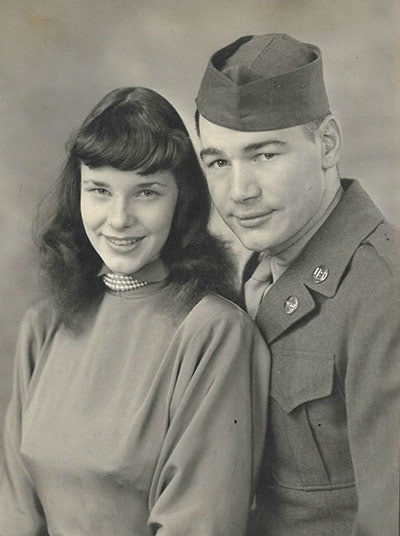
SI: What has been your greatest accomplishment thus far?
PP: This is not an easy question to answer. Scientifically, I think that showing that one can measure enzyme activity through the skin non-invasively was probably my most significant contribution to the industry. Publishing the books on skin care with the help of Skin, Inc., particularly the publications of the three editions of skin physiology, was a significant achievement as well. I am most gratified by the increase in, and overwhelmingly response for, continuing education from estheticians. I think raising awareness of the need for higher education in skin care in the industry was my most noteworthy accomplishment.
SI: What do you enjoy most about the skin care industry?
PP: Generally, the enthusiasm and devotion to their chosen occupation is a hallmark of most estheticians, which makes working with them much more pleasant and productive. The goal of skin care is for the client to end with improved, healthy skin, which results in a client whose opinion of themselves has improved, and I know that is a positive contribution to society.
SI: What advice or direction would you give someone entering the industry?
PP: Get the best training you can possibly receive. Keep up with your education, go to meetings and network with other estheticians and businesses. Try to understand your client’s needs. This industry is essentially one of caregiving; you must feel comfortable working with and touching people. Don’t be the first, nor the last, to embrace new techniques. Remember that knowledge is power, and power is what you need to be successful in this industry.
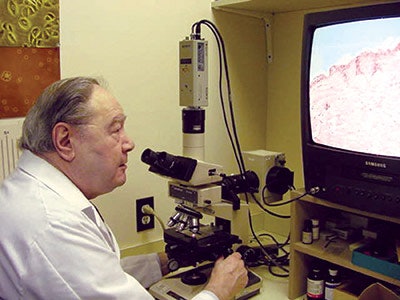
SI: Where do you see the future of the spa and skin care industry heading?
PP: New types of diagnostic and therapeutic modalities are being developed employing light. Light is currently a very popular form of treatment as seen in LED light therapy for example. This is only the beginning, for within the next few years we will see amazing diagnostic equipment for skin care as well as several new light-based modalities for treating aging skin and other conditions. Future skin care that is science-based will be extremely exciting for the esthetician and the client.
SI: What do you like to do in your free time?
PP: While I still work five days a week, I do allow time for woodworking. I like to create reproductions of colonial furniture. I also enjoy working with automated wood carving machines and lasers; I even have an automatic router table. I spend the rest of my weekend reading about cosmology, with friends or with my daughter Susan who’s learning Italian with me. My other interest is in writing a new book called Deus Est. (Latin for “God is”). This is requiring a great deal of time just to gather the background material already published, both pro and con, but in the end, it all comes down to love and God is love.



